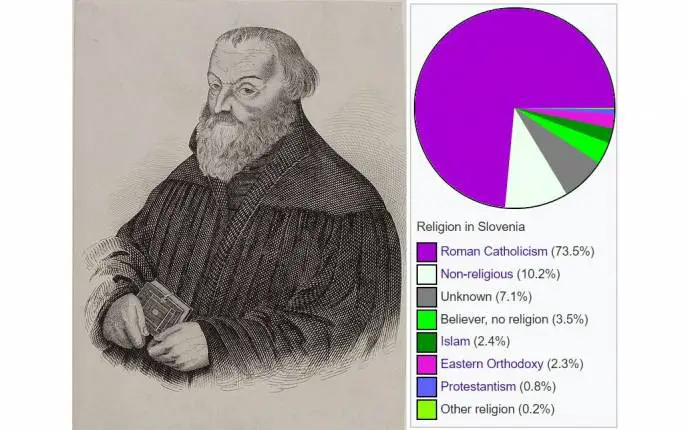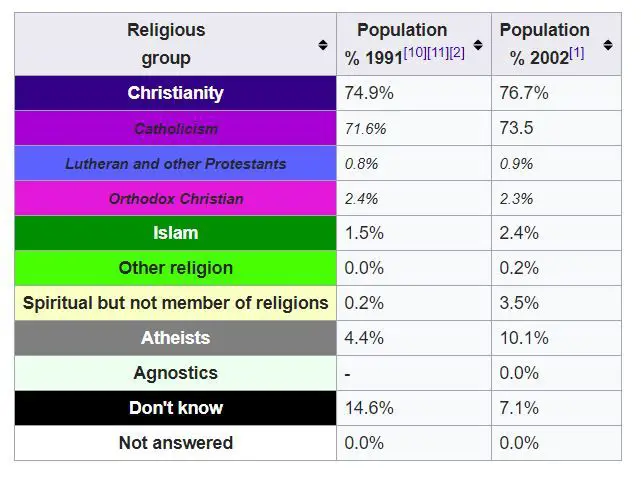Protestant priest Primož Trubar (1508-1586) and other rebels of that time undermined the established social and political order, providing Slovenians with cultural and national self-reliance as well as tools for change and development, says Matjaž Gruden, the president of the Primož Trubar Protestant Association.
Without the Protestants, Slovenians would probably not have their own state or language. "We would humbly bow and serve various masters, and together with the Catalans or other stateless nations more or less unsuccessfully fight for sovereignty and international recognition," he told the STA ahead of Reformation Day.
The Reformation is credited with bringing Slovenians the Slovenian literary language, with Trubar writing Catechism as the first Slovenian printed book in 1550.
Although manuscripts had featured a rich tradition of spoken Slovenian before, creating a literary language was a major step forward, says linguist Kozma Ahačič.
This brought up the question of where, geographically, the new literary language would be used, "which encouraged the development of the awareness which we today describe as nation".
Ahačič says the Reformation movement also encouraged reflection on the issues of religion, which brought another spark to the intellectual environment in Slovenian lands.
"Those times called for renaissance," explains Bishop Geza Filo, the head of Slovenia's Evangelical Lutheran Church.
He notes that in the 16th century, Christianity embarked on a path of heated debates and profound change, which eventually changed Europeans for good, making them more religiously tolerant and free.
He believes the Slovenians can be proud of their Reformers, who understood the zeitgeist and the need for change, knowing how to link it with the needs of their nation.
Pointing to "Trubar's mighty personality at the centre of the change", Filo says publishing the first Slovenian books and Jurij Dalmatin translating the entire Bible in 1584 "put the Slovenian nation irreversibly onto the map of European nations".
And although it is hard to speculate what "an imaginary protestant Slovenia" would be like today, sociology professor Marko Kerševan believes Slovenians would be more personally free and responsible, not so often shifting responsibility onto various groups or higher Church and government instances.
He says the Counter-Reformation movement cherished collective religiousness and although it also encouraged individual religiousness and morale, it at the same time strictly controlled them.
"This prevented individual confidence and responsibility from developing," says Kerševan, a professor of sociology of religion, who himself is a Protestant.
He believes that had the Reformation prevailed over the Counter-Reformation, Slovenia would now have a Church less ambitious in terms of material gain and power and a less polarised society.
Slovenia is a predominantly Roman Catholic country. According to the 2002 population census, around 1% of its two-million population are Protestants, mostly Lutherans.
Source: Wikipedia







